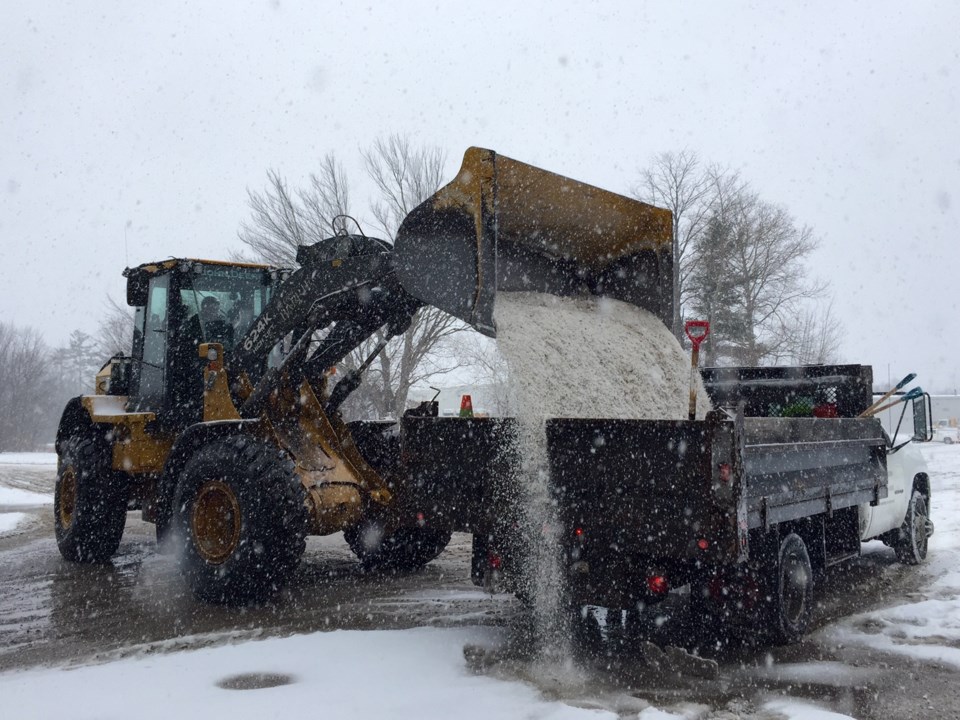City road crews are ready to roll when, and if, the predicted winter storm hits.
Environment Canada upgraded a snow quall watch to a warning Thursday afternoon but crews have already started preemptive measures.
"All our prep is in place," said Craig Morton, Manager of Roads, Parks and Fleet.
"Our staff were out at midnight and put anti-ice salt brine down on all priority routes. We're monitoring the weather and the pavement temperature to see how the weather is coming in and we'll take further action as required as the storm developments."
The city's fleet includes 25 plows, including contract trucks 14 salters/sanders and 19 sidewalk plows.
This wintry weather is hitting a little later than some years.
"We were out in the last few days of October last year. We were actually having our snow school training when the storm hit. We had to leave early to attend to it," laughed Morton.
Barrie has its own weather stations and pavement temperature sensors buried in the pavement to measure the temperature of the road surface.
That helps crews to decide what type of materials to put down and how much and can also predict when black ice is going to occur.
It's not exactly a high tech crystal ball.
"It would be if you didn't have those temperatures to try and figure it out. When you have the air temperature, the pavement temperature and the dew point you can tell," Morton explained.
This year the city is trying different types of chemicals to fight ice.
Some of the pilots feature different types of de-icing chemicals against traditional practices to see if there is improved performance and reduction of overall salt usage.
The new additive this year is molasses.
"We had been using beet juice in the past but we're piloting a molasses derivative combined with magnesium chloride. When the temperature gets below minus 12 salt becomes ineffective. We add these chemicals to our salt brine in various percentages depending on the weather. That will lower the melting point to minus 30," said Morton.
As we brace for wintry weather, and it will come, Morton is asking drivers to be patient and give his operators good clearance.
"At the beginning of the year it takes a while for us all to adjust and drive with caution. We're out there doing our best."
He's also asking residents to keep their cars off the road during the storm. Overnight parking restrictions don't take effect until December.
"If you can get your car off the street it allows plows to to their job," said Morton.



